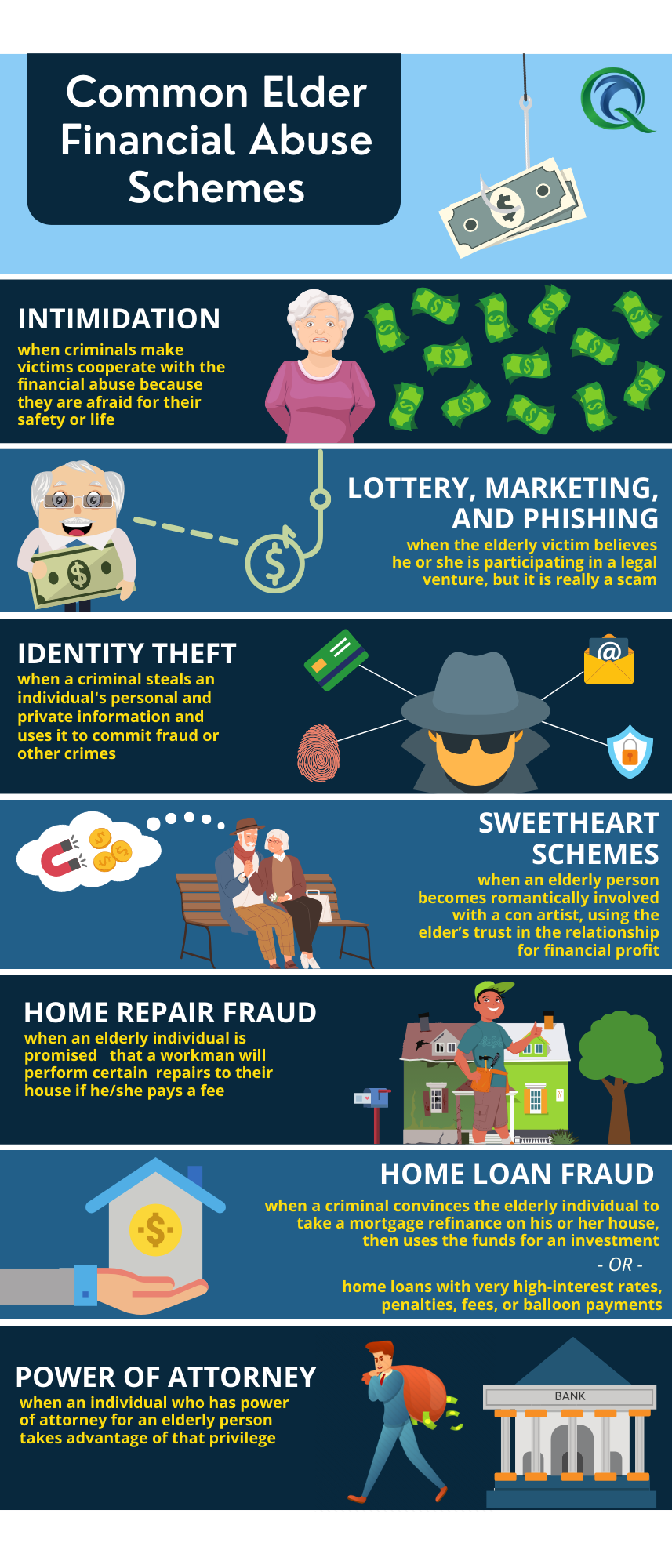What is Elder Fraud and How do you Notice It
Learn about Elder Fraud and the common scams that watch out for to protect your loved ones.
Posted on June 15, 2021

What is Elder Fraud?
Elder fraud occurs when someone abuses the position of trust or influence they have with an elderly person (usually 60+) in order to gain access to that older person’s assets and/or cash money. Due to weakening mental and physical health among the elderly, they have become easy targets for those looking to commit financial abuse. Typically, these scammers try to locate those that seem to be vulnerable, lonely, isolated, or mentally and/or physically disabled. Elders that are unfamiliar with handling their personal finances are also an easy target for financial abuse.
Common Scams Used for Elder Abuse
Financial abuse can come from anyone, but it often occurs between an elder and someone they know. In some cases, financial professionals - like portfolio managers and investment advisors – can use their authority and access to accounts to commit elder fraud. Below is a chart that lists some of the common ways scammers, both known and unknown, may try to take advantage of an elder. Tactics include: intimidation, using a power of attorney, lottery/marketing/phishing, sweetheart schemes, home repair fraud, home loan fraud, and identity theft.

How Can my SDIRA Custodian Help?
Your custodian is there to protect you as much possible, while still remaining compliant. As a self-directed IRA custodian, Quest and others will provide as much education, due diligence trainings, and awareness information as we can in order to equip elders and their family with financial abuse knowledge. At Quest, we make it a priority to give you as much education early on so that you don’t fall victim to elder fraud scams in the future. If elder abuse is suspected by a Self-Directed IRA custodian like Quest, we are required to report the suspected abuse, even if proof is unavailable, as this is not required. Certain indicators can lead a custodian to suspect elder abuse is occurring. Changes like customer behavior or appearance, the type or frequency of transactions (increased withdraws, unusual funding, excessive amounts, etc.), physical injuries, disorientation or confusion, and even changes in who performs the transaction or who is with the customer at the time of transaction can all be potential red flags.
Elder abuse and fraud is a serious offense and shouldn’t be treated lightly. If you suspect that you or someone you know is falling victim to elder fraud, contact your custodian immediately. Although these accounts are self-directed and require client due diligence, we can provide helpful resources and information. To learn more about how to protect yourself or someone you love, schedule a 1-on-1 consultation with an IRA Specialist by clicking HERE.








